Five more students and seven faculty and staff members are now certified accessibility leaders after passing the Level 2 Accessibility Leader exam organized by the Accessibility Leader Promotion Consortium, an association consisting of 27 universities and the Japan Student Services Organization. Several of the new accessibility leaders attended a ceremony at Hisao & Hiroko Taki Plaza (Taki Plaza) on March 11 to receive their certifications from Vice President for Student Affairs and Student Support Center Head Tetsuji Okamura.
The certification ceremony also included a session during which student accessibility leaders for academic year 2023 conducted the Tokyo Tech Accessibility Survey. Many participants shared their opinions about accessibility at the Institute openly, and these suggestions will be put to use when updating Tokyo Tech's Accessibility Map.
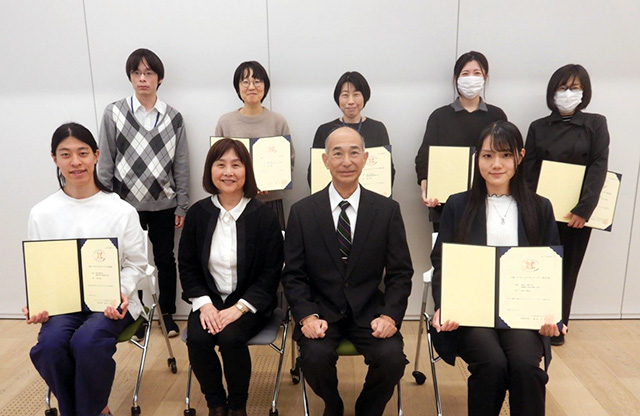
New accessibility leaders present at ceremony with VP Okamura (front, 2nd from right) and Student Guidance and Accessibility Section Head Noriko Michimata (front, 2nd from left)
One definition of accessibility is the ability for everyone, regardless of disabilities, physical characteristics, age, language, culture, or other factors, to use facilities and participate in activities. It refers to the ease of use of information, services, products, environments, and the like for as many people as possible.
At Tokyo Tech, Student Accessibility Services at Tokyo Tech's Student Guidance and Accessibility Section organizes the Accessibility Leadership Program (ALP) on an on-demand basis to develop professionals capable of promoting accessibility in a diverse society. Upon completion of the program, participants can, if they wish, take the Accessibility Leader Promotion Consortium Level 2 Accessibility Leader exam.
Academic year 2023 marks the fourth year of ALP at Tokyo Tech. To date, over 150 of the Institute's members have joined the program with the goal of contributing to campuses that are accessible to all.
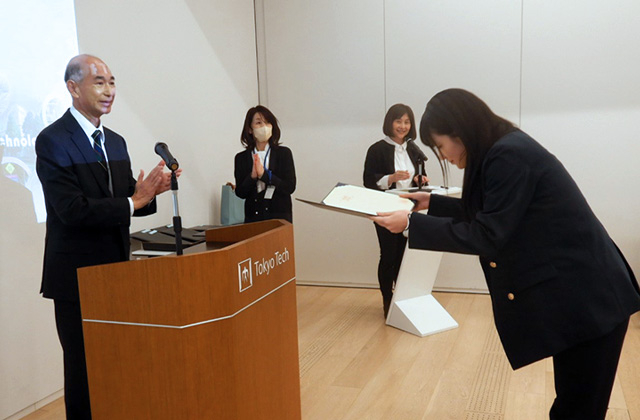
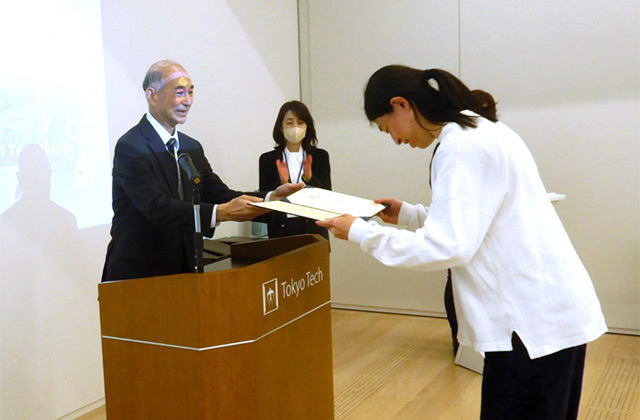
Accessibility leaders receiving certificates
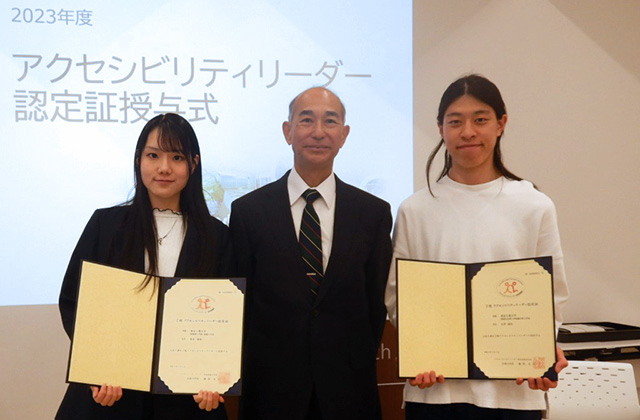
Student accessibility leaders with VP Okamura (center)
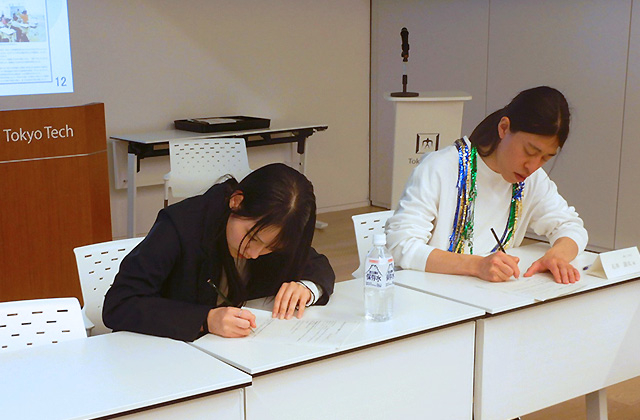
Tokyo Tech Accessibility Survey members
Comments from new accessibility leaders
New accessibility leaders present at the certification ceremony shared the following comments about ALP:
I gained a wide range of useful knowledge through this program. In the future, I would like to be an active accessibility leader and learn more about various initiatives.
I learned so much about bodily functions, accessibility-related legal aspects, and other topics. Gradually, in my daily life, I began to notice the lack of accessibility and possible ways to improve it.
I realized that a truly broad range of knowledge is necessary to think seriously about accessibility. We had to consider many different cases and scenarios, and that made it very challenging.
The way I view my surroundings has changed. For example, I now pay more attention to Braille blocks and whether a door is a sliding door or not. I have definitely become more concerned about mobility-related accessibility. I am also more aware of the legibility of the documents I create, and try to make them easy to read for as many people as possible. I consider, for example, whether the fonts are clearly visible and whether the color contrast is appropriate.






